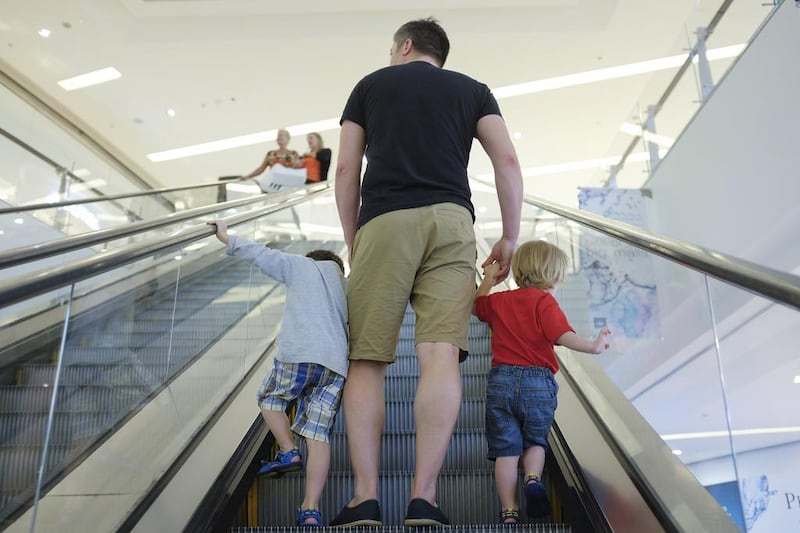Sigmund Freud said that the strongest need in childhood was for a father’s protection. This may sound controversial to some but science has proven it to be true.
Countless studies show the importance of the father’s role in early childhood and it is now considered to be an important factor in a child’s overall social competence, social initiative, social maturity and the capacity to relate to others. Every child needs an involved and loving father.
Fathers provide both physical and psychological support and this can even be seen in the animal kingdom. Consider a penguin family. The emperor penguin, who is the father, takes responsibility for keeping the eggs warm throughout the freezing winter months when the female, whose nutritional level may be depleted after laying eggs, goes to the deep sea for up to two months.
Interestingly though, sometimes modern society fails to fully recognise the father’s role in the family and stereotypically limits it to providing financial support.
We are sadly diminishing the importance of the father’s role in the family and in the raising of children.
There is an old saying that “one father is more than a hundred school masters”. This is true and is borne out by scientific research. Studies have found that infants with highly involved fathers, as measured by the amount of interaction, are more cognitively competent at six months and score higher on the Bayley scales of infant development, which are a standard series of measurements used to assess children aged 0 to 3. Researchers also found that such infants had a higher IQ by age three.
Researchers have found that mothers and fathers speak to their toddlers in very different ways. A father’s talk is characterised by more questions, such as “what” and “where”, which stimulates children and gets them to take over more responsibility for communication in that interaction.
The benefits of involving fathers in the care of their children during the early years is not limited to the health and well-being of the children but reflects back on the whole family. As we can see from the research, families in which the fathers were involved in raising the children, report fewer accidental and premature deaths, less than average contact with the law, less substance abuse, fewer hospital admissions and a greater sense of well-being overall.
As a young mother, I still remember my experience with my first child and the strong desire to prove to myself and everyone else that I was the perfect supermom. That struggle loaded my work and family life with mixed feelings of guilt and unnecessary stress and I lost out on the chance to enjoy and share responsibility for raising the child with my husband.
It was only later that I understood the saying: it take sa village to raise a child. Studies have proved that a father’s early involvement in caring for children helps with marital stability and is even associated with marital satisfaction in midlife, making it more likely that the couple will still be happily married 10 or 20 years after the birth of their first child. This data provides the scientific evidence for us to seek greater involvement of fathers and more shared responsibility in raising young children.
A father’s involvement in their child’s life can start as early as in the delivery room. Mothers should be wise enough to recognise that trusting the father with a young infant as early as day one is a strategic investment in the stability of the family and the mental health of the offspring.
Although many of us in this part of the world may never have heard about “Father’s Day”, celebrating fathers and their role is not a new notion.
The modern tradition of celebrating father’s day in the West goes back to the early 19th century. It started as an initiative led by a Washington lady named Sonora Louise. She had the idea of honouring her own father, who raised six children including a newborn after the death of her mother when she was 16. Her personal admiration and recognition of her father drove her to fight for the establishment of a father’s day. It was celebrated for the first time on June19, 1910.
Personally, I am grateful to Sonora Louise. As a child, I always felt guilty when marking Mother’s Day, that there was an unfairness of sorts towards my father who I admired a lot.
Today, as a mother, it would seem unfair to my beloved husband who gives as much I do to our children, if his contribution were ignored. So Happy Father’s Day, dad! You truly give me the greatest gift anyone could give another person, you believed in me.
Amal Al Jaberi is a Shamsa bint Mohammed Al Nahyan early childhood development fellow with the Salama bint Hamdan Al Nahyan Foundation





